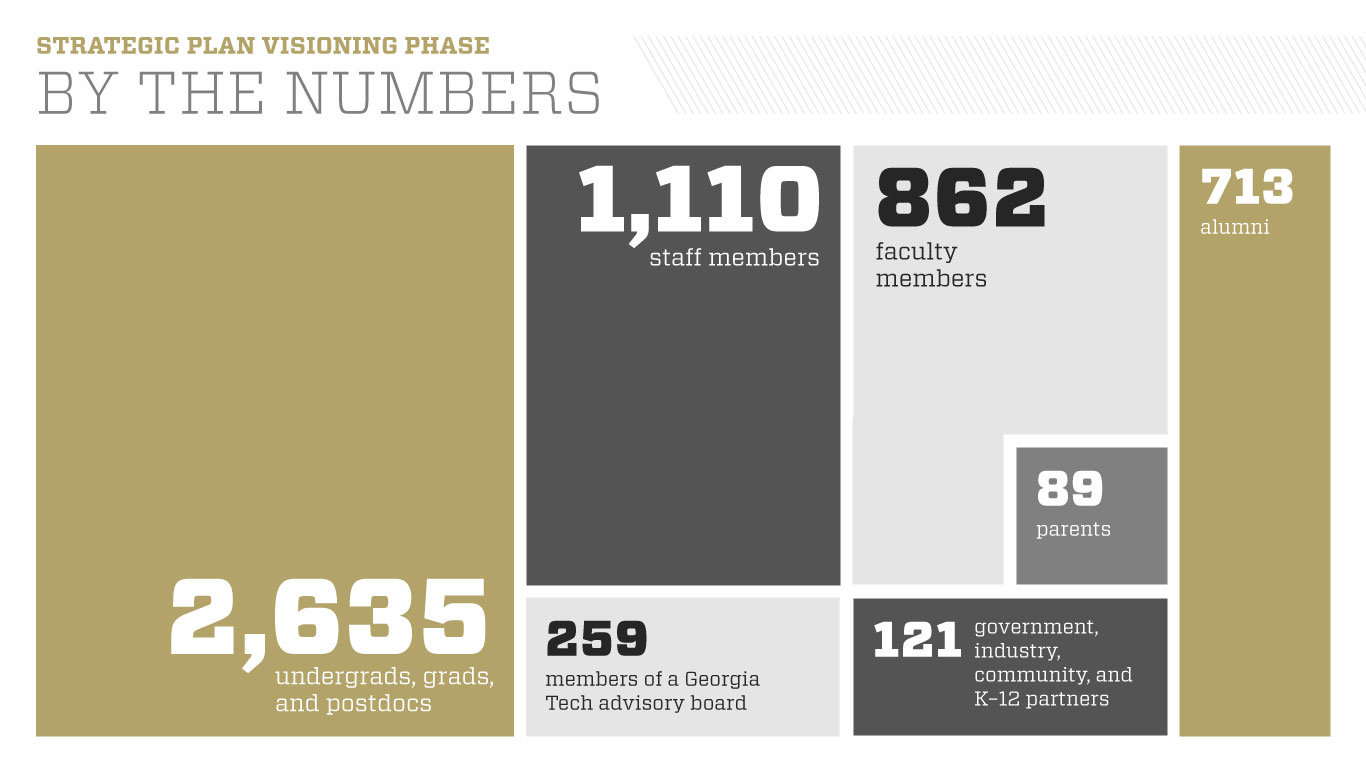Campus Involvement
During the Visioning Phase, more than 5,700 students, faculty, staff, alumni, campus partners, and community leaders shared varied perspectives, aspirations, and dreams to help shape the future of the Institute.
It is interesting that Georgia Tech’s last strategic plan was designed during a global recession, while much of this one was finalized during a pandemic. For more than 135 years, the people of Georgia Tech have dared to imagine and then create solutions for a better future no matter their current circumstances. The innovative leadership continues — for Progress and Service for all.
Role of the Project Team
During the visioning phase, the project team members gathered input from faculty, staff, and students through a variety of in-person and online formats, including meetings, focus groups, webinars, and social campaign forums.
They developed and distributed communications, provided logistical support, and synthesized, organized, and prepared the data for the Steering Committee. Watch a video of the process.
(text and background only visible when logged in)
Role of the Steering Committee
The steering committee worked to extrapolate and organize the most relevant and salient themes from the data collected during the visioning phase, and then divided into four sub-committees to draft a mission statement, vision narrative, values definitions, and focus areas that the working groups could use going forward.
(text and background only visible when logged in)
Role of the Working Groups
Each working group was comprised of internal and external stakeholders with specific knowledge, skills, and responsibilities in each of the six strategic impact focus areas areas. Working groups were tasked with delivering goals, objectives, and measures of success around a respective focus. Each group had two co-leaders responsible for guiding, focusing, and reporting on behalf of the group, as well as two facilitators to assist with agendas, deliverables, focus, and meeting expected timelines
Amplify Impact:
Embrace our power as agents of change for the public good and concentrate our research and learning efforts on identifying and solving the most critical and complex problems of our time, locally and globally.
Champion Innovation:
Champion our leadership position as an engine of innovation and entrepreneurship, and collaborate with other public and private actors to create economic opportunity and position Atlanta and Georgia as examples of inclusive innovation.
Connect Globally:
Strengthen our role as a convener of worldwide collaboration and build a global learning platform to expand our reach and amplify our impact.
Expand Access:
Empower people of all backgrounds and stages of life to learn and contribute to technological and human progress.
Cultivate Well-Being:
Strengthen our culture of well-being and create an environment of holistic learning where all members of our community can grow and learn to lead healthy, purposeful, impactful lives.
Lead by Example:
Lead and inspire by example by creating a culture of deliberate innovation in our own practices and being an example of efficiency, sustainability, ethics, and inclusion.

